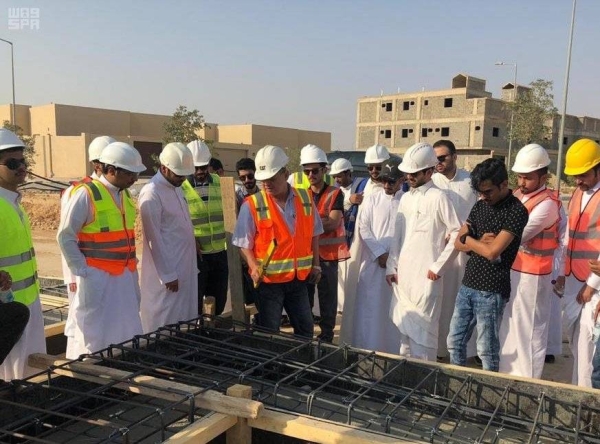Riyadh: August 2024 – This shall be the Kingdom of Saudi Arabia’s transformational journey, as it is destined to reshape its workforce, revealing dynamic fresh opportunities for its people. Under a bold new initiative in effect July 21, 2024, the Ministry of Human Resources and Social Development has inaugurated, in collaboration with the Ministry of Municipal and Rural Affairs and Housing, a far-reaching policy that will ensure the Saudization of 25% of private sector engineering professions which is 5% more than last year. Rather than just a regulatory change, this strategic choice signals an inclusive, dynamic, self-sustaining labor market.
The Meaning of Saudization: What Does It Mean?
Saudization is the process of increasing the employment of Saudi nationals within different economic sectors of the country. It is one of the major cornerstones on which the Kingdom’s 2030 plan fundamentally stands. This initiative aims to diversify the economy, break dependency on oil, and establish a strong and skilled workforce. The manning of 25% of the engineering positions in the private sector with Saudi nationals will necessarily result in local employment, skill development, and hopefully, an eventual spike in economic growth in the state.
The Core Objective: Elevating Saudi Talent
Developing Saudi talent in engineering is at the heart of this Saudization policy. The private sector is a driver of economic development. By providing professional positions in engineering, more Saudis will be able to access highly paid jobs in a sector that forms a backbone of the Kingdom’s infrastructure and innovative capacity.
Scope of the Policy: Who Will It Impact?
The Saudization mandate will apply to all private sector companies with a minimum of five employees in engineering positions, ensuring broad applicability. Businesses will need to adjust their recruitment policies and workforce composition to comply with this new requirement. This marks a pivotal moment for employers and job seekers in the engineering sector.
Incentives and Support: Empowering Employers and Employees
The Ministry of Human Resources and Social Development, in collaboration with the Ministry of Municipal and Rural Affairs and Housing, has established a variety of incentives and support programs to ensure the successful implementation of this policy. These measures are designed to assist private sector establishments in transitioning to the new requirements and effectively integrating Saudi engineers into their workforce.
Support for Attraction and Recruitment
Private sector entities will receive specialized support in attracting and recruiting Saudi talent. This includes access to resources and platforms that facilitate the search for qualified candidates. The aim is to simplify the hiring process, making it easier for companies to find and hire qualified Saudi professionals interested in engineering roles.
Qualification and Training Programs
To equip Saudi nationals with the necessary skills and expertise, the policy includes comprehensive training and qualification programs for new recruits. These programs provide technical skills and practical experience, ensuring that Saudi engineers are well-prepared to meet industry demands and excel in their roles.
Career Development Support
Career development is a crucial aspect of this initiative. Saudi employees will benefit from support in career progression, including opportunities for promotions and skill development. This focus on career development ensures that Saudi nationals not only enter the engineering profession but also achieve long-term success and growth.
Priority Access to Nationalization Support Programs
Private sector establishments will have priority access to nationalization support programs offered through the Human Resources Development Fund (HADAF). These programs provide additional training resources, financial incentives, and other support mechanisms to encourage the employment of Saudi nationals. By leveraging these resources, companies can more effectively integrate Saudi engineers into their teams.
Monitoring and Ensuring Success
The successful implementation of the Saudization policy will require careful planning and monitoring. The Ministry of Municipal and Rural Affairs and Housing will oversee the policy’s execution, ensuring it aligns with labor market needs and engineering specializations. This oversight includes periodic evaluations and feedback mechanisms to address challenges and make necessary adjustments.
Consultation with the Private Sector
The government is committed to engaging with the private sector throughout the implementation process. This collaborative approach will ensure that companies receive the support they need and that the transition is smooth. Ongoing communication and dialogue will help businesses understand their obligations and make informed decisions about hiring and training Saudi engineers.
A Stronger Citizenry: Exciting Prospects for Saudis
This policy presents a tremendous opportunity for Saudi locals to advance in the engineering profession. With 25% of positions reserved for Saudi professionals, there are exciting career paths available for both recent graduates and experienced engineers seeking new challenges.
Empowering Career Potential
The Saudization policy opens doors to diverse and enriching career opportunities. Saudi engineers will have the chance to work on high-profile projects, contribute innovative ideas, and play a significant role in shaping the future of the Kingdom’s infrastructure and technology sectors.
Building a Stronger Workforce
By increasing the involvement of Saudi nationals in engineering professions, the policy contributes to building a stronger, more resilient workforce. A more skilled and locally-driven engineering sector enhances the Kingdom’s capacity for growth and development, supporting the broader goals of Vision 2030.
Contributing to National Development
Saudi engineers will have the opportunity to directly contribute to the Kingdom’s national development goals. Their involvement in engineering roles will be crucial for the successful completion of projects that drive economic growth and improve the quality of life across the nation.
Vision 2030 and Beyond: The Road Ahead
The Saudization of 25% of engineering professions represents a significant milestone in the Kingdom’s Vision 2030 journey. This policy demonstrates the Kingdom’s commitment to diversifying its economy and developing local talent. As the policy takes effect, it will contribute to the broader goals of creating a more inclusive and innovative workforce.
Cultivating an Innovative Atmosphere
The engineering sector is continuously evolving with advancements in technology and infrastructure development. By increasing the number of Saudi nationals in the field, Saudi Arabia is embracing change and innovation, ensuring that its workforce is well-equipped to face future challenges and opportunities.
Looking Forward to a Brighter Future
Both employers and employees can look forward to a bright future as Saudi Arabia implements and refines its Saudization policies. The focus on enhancing local talent and supporting career development is set to drive long-term success, creating a dynamic and industrious workforce.
For private sector organizations, this policy offers an opportunity to contribute to the Kingdom’s development and benefit from government support. Participating in the Saudization program can make a significant impact on the engineering industry and local communities.
This is an exciting time for career opportunities in Saudi Arabia. Whether you are a recent graduate or seeking new challenges, the Saudization policy offers valuable pathways to success in the engineering field.
Conclusion: A New Era for Engineering in Saudi Arabia
By integrating 25% of the engineering workforce with Saudi nationals, this Saudization policy marks the beginning of a transformative journey for the Kingdom of Saudi Arabia. Focusing on local talent, national growth, and career development will shape an inclusive, diverse, and dynamic workforce. With the policy set to take effect on July 21, 2024, private sector establishments and Saudi nationals have a historic opportunity to participate in and benefit from this transformation. And we believe In the future this percentage keep increasing.

